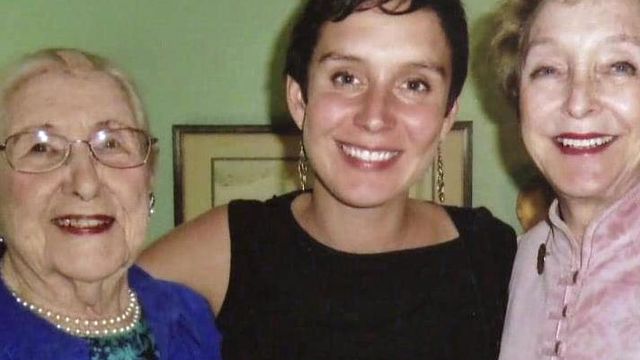Three generations of women survive breast cancer
Three generations of women in one family are all breast cancer survivors, and their stories illustrate the advances in care for the disease over nearly 30 years.
Posted — Updated"We're so grateful that we're survivors," said Jean Wurster of Salisbury, who battled cancer along with her 94-year-old mother, Doris Miller, and 32-year-old daughter, Liz Wurster.
Miller was diagnosed in 1983 when a mammogram caught the tumor early. A mastectomy was the only treatment available then, and she's been cancer-free since.
Seven years later, her then-45-year-old daughter, Jean Wurster, was diagnosed with breast cancer.
"When the day came that my daughter had it, that was the darkest day of my life," Miller said.
Jean Wurster had felt a lump two years earlier.
"I had two doctors who told me it was nothing. The mammogram showed nothing," she said.
When the cancer was found, it had spread to her lymph nodes. Jean Wurster underwent a mastectomy, breast reconstruction surgery and six months of chemotherapy.
"It was a hard year," she said.
With this family history, doctors advised her daughter, Liz Wurster, to begin mammograms two years ago, at the age of 30. A previous test for the breast cancer gene came back negative.
Last February, though, Liz Wurster felt a pea-sized lump, and an MRI scan found a tumor.
"It was a grade 3, which is a very dangerous type of cancer," she said.
She chose an aggressive course of treatment involving a bilateral mastectomy, chemotherapy and the drug herceptin.
"I had the utmost confidence that they would be able to take care of her and she'd have a long and happy life," Miller said.
Liz Wurster had access to new imaging equipment and drugs that weren't available to her mother and grandmother.
Digital mammography and MRI scans can produce more detailed images that help doctors better spot tumors. The drug herceptin was invented in the late 1990s and has significantly improved the survival rate of women like Liz Wurster with breast cancer HER-2. A quarter of women with breast cancer have that variety of it.
Awareness of the disease has also led to more women getting regular screenings.
The three women plan to walk together in the Susan G. Komen Race for the Cure in Raleigh Saturday to raise money for even more advances in cancer treatment.
"It's great," Liz Wurster said. "I'll bet Grammy will be the oldest person probably walking in the race."
"It's just natural to be part of doing this with them," Miller said.
The women want to encourage others fighting breast cancer that there is hope.
"We're healthy, and we're enjoying life. It's just getting better and better," Jean Wurster said.
• Credits
Copyright 2024 by Capitol Broadcasting Company. All rights reserved. This material may not be published, broadcast, rewritten or redistributed.






